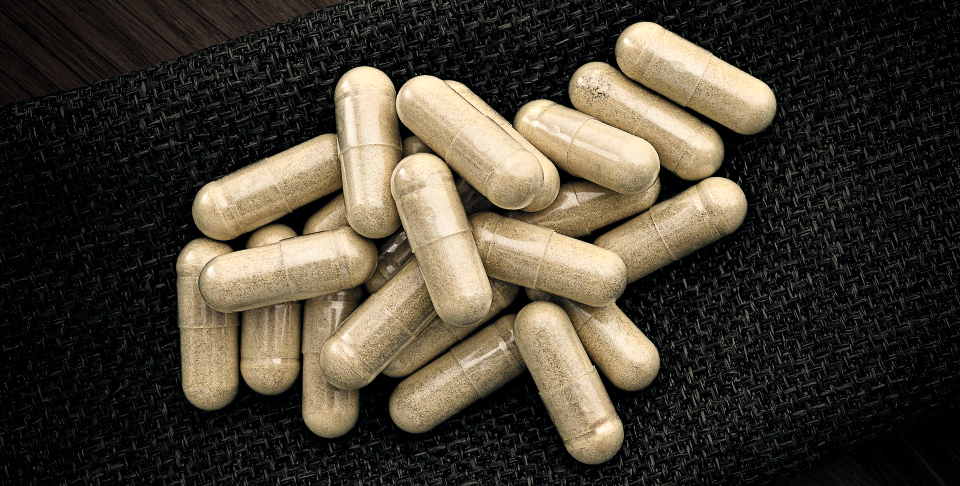Free Shipping - 48hrs Only | Use Code: FREESHIP
Ends 26/04 11:59PM AEST Min spend $79
Quick Summary
- Quercetin, abundant in the diet, is known for antioxidant and anti-inflammatory effects, positively affecting human physiology.
- Found in fruits, vegetables, tea, and wine, especially in grapes, onions, and apple skins.
- Research supports its role in reducing blood pressure and offering cardioprotective benefits.
- Studies suggest quercetin's potential in selectively targeting cancer cells through gene regulation.
- It may enhance endurance and performance, possibly by boosting energy production in cells.
- Supplementation could bolster immune function and reduce respiratory infections post-intense training.
- While high doses showed adverse effects in animals, typical human consumption (200 to 2000mg/day) appears safe.
- Available in tablets or capsules, with effective doses starting from 500mg daily, quercetin can be combined with other antioxidants.
What is Quercetin?
Quercetin is the most abundant dietary flavonoid in the human diet and is sufficiently bioavailable to exert wide-ranging physiological effects in humans. It is widely known for its antioxidant and anti-inflammatory properties1.
Where Does Quercetin Come From?
Quercetin is a naturally occurring flavonoid that is found exclusively in a diverse range of fruits, vegetables and beverages such as tea and wine1. Quercetin is particularly high in the skins of grapes, onions and apples11.
Quercetin Potential Benefits
Quercetin supplementation has been associated with the prevention of cardiovascular diseases. In stage 1 hypertensive patients, 730 mg quercetin/day for 28 days was associated with reduced systolic, diastolic and mean arterial pressures2. A large number of animal studies also support the cardioprotective properties of quercetin1.
An abundance of the literature suggests that quercetin can be efficient at treating cancer by inducing cell death preferentially in cancer cells versus their normal counterparts through a process involving the down-regulation of selective cancer genes, or the up-regulation of tumour suppressor genes, which, in turn, enhance selective pathways leading to the elimination of cancer cells2, 3.
Several studies have explored quercetin’s ergogenic potential, with some conflicting results12. In terms of positive studies, one found supplementation with 500mg twice daily for seven days led to increased endurance without any corresponding exercise training in untrained participants7. Another study of a popular energy drink featuring quercetin as the main active ingredient found a significant improvement in high-intensity cycling time trial performance compared with the same energy drink not containing quercetin after 6 weeks of supplementation13.
To add to these studies, there have also been studies in humans and mice suggesting that supplementation with quercetin can improve mitochondrial biogenesis, which essentially is the machinery responsible for energy production in the mitochondria. An analogy can be increasing the production line capacity in a food factory.
Lastly, there is also some evidence that supplementation with quercetin at 1000mg per day for 3 weeks can help prevent the decrease in immune function and incidence of upper respiratory tract infections following an intense 3-day training regime in trained cyclists15.
Negative Side Effects of Quercetin
During a 2-year study conducted by a US-based government organisation called National Toxicology Program, male rats fed 2 g/kg body weight/day of quercetin (corresponding to a dose of 140 g for a 70 kg individual) showed severe chronic nephropathy, hyperplasia and neoplasia of the renal tubular epithelium. At lower doses, from 50 to 500 mg/kg/day, no significant adverse effects were reported.
However, parallel studies performed using the same rat model failed to confirm the renal histopathological effects of quercetin10. Therefore, the possibility of negative side effects from oral supplementation with quercetin in the usual range of 200 to 2000mg/day is very unlikely.
Quercetin Recommended Dosages & Timing
A wide range of dosages have been studied for quercetin. In studies exploring its ergogenic effects, 1000mg per day is not uncommon, with some using up to 2000mg per day12. While specific advice on the timing of intake is not apparent; many studies have athletes supplement with quercetin prior to exercise.
Quercetin Supplements
Because it is typically taken in amounts lower than 1000mg, quercetin is most commonly sold in the form of a tablet or capsule. It is worth noting that to attain any therapeutic benefits from quercetin supplementation, you need to take a minimum of 500mg or so a day. This is important to keep in mind when choosing your quercetin supplement.
Stacking Quercetin with Other Supplements
While stacking quercetin is not very common, some may choose to stack it with other antioxidant formulas or products to complement its antioxidant and anti-inflammatory action. Such supplements may include superfoods or greens powders, NAC, omega 3 and 6 oils, and vitamin C. Further, there is some research suggesting Quercetin may be beneficially combined with resveratrol, genistein, and catechins.
Quercetin Safety
Quercetin is one of the few flavonoids to have undergone a phase I clinical trial to determine safety. The recommendation from the trial was a dose of 1400 mg/m2, which corresponds to about 2.5 g for a 70 kg individual. However, this dosage was specifically for intravenous infusion at 3-week or weekly intervals8.
At higher doses, up to 50 mg/kg (about 3.5 g/70 kg), renal toxicity was detected without signs of nephritis or obstructive uropathy8. Other human studies have failed to show any adverse effects associated with the oral administration of quercetin in a single dose of up to 4 g or after one month of 500mg twice daily9.
References
1. Edwards RL, et al. Quercetin reduces blood pressure in hypertensive subjects. J Nutr. 2007;137:2405–2411.
2. Russo M, et al. The flavonoid quercetin in disease prevention and therapy: Facts and fancies. Biochemical Pharmacology. 2012;83:6-15.
3. Lee KW, Bode AM, Dong Z. Molecular targets of phytochemicals for cancer prevention. Nat Rev Cancer. 2011;11:211–218.
4. Boots AW, et al. Health effects of quercetin: from antioxidant to nutraceutical. Eur J Pharmacol. 2008;585(2–3):325–37.
5. Davis JM, et al. Effects of the dietary flavonoid quercetin upon performance and health. Curr Sports Med Rep. 2009;8(4):206–213.
6. Harwood M, et al. A critical review of the data related to the safety of quercetin and lack of evidence of in vivo toxicity, including lack of genotoxic/carcinogenic properties. Food Chem Toxicol. 2007;45(11):2179–2205.
7. Davis JM, et al. The dietary flavonoid quercetin increases VO(2max) and endurance capacity. Int J Sport Nutr Exerc Metab. 2010;20(1):56-62.
8. Ferry DR, et al. Phase I clinical trial of the flavonoid quercetin: pharmacokinetics and evidence for in vivo tyrosine kinase inhibition. Clin Cancer Res. 1996;2:659–68.
9. Lamson DW, Brignall MS. Antioxidants and cancer, part 3: quercetin. Altern Med Rev 2000;5:196–208.
10. Harwood M, et al. A critical review of the data related to the safety of quercetin and lack of evidence of in vivo toxicity, including lack of genotoxic/carcinogenic properties. Food Chem Toxicol. 2007;45:2179–2205.
11. Hertog MGL, Hollman PCH, Katan MB. Content of potentially anticarcinogenic flavonoids of 28 vegetables and 9 fruits commonly consumed in The Netherlands. J Agric Food Chem. 1992;40:2379.
12. Kressler J, et al. Quercetin and endurance exercise capacity: A systematic review and meta-analysis. Medicine and Science in Sports & Exercise. 2011;43(12):2396-2404.
13. MacRae HS, Mefferd KM. Dietary antioxidant supplementation combined with quercetin improves cycling time trial performance. Int J Sport Nutr Exerc Metab. 2006;16(4):405-419.
14. Davis JM, et al. Quercetin increases brain and muscle mitochondrial biogenesis and exercise tolerance. Am J Physiol Regul Integr Comp Physiol. 2009;296(4):R1071-1077.
15. Nieman DC, et al. Quercetin’s influence on exercise performance and muscle mitochondrial biogenesis. Med Sci Sports Exerc. 2010;42(2):338-345.


